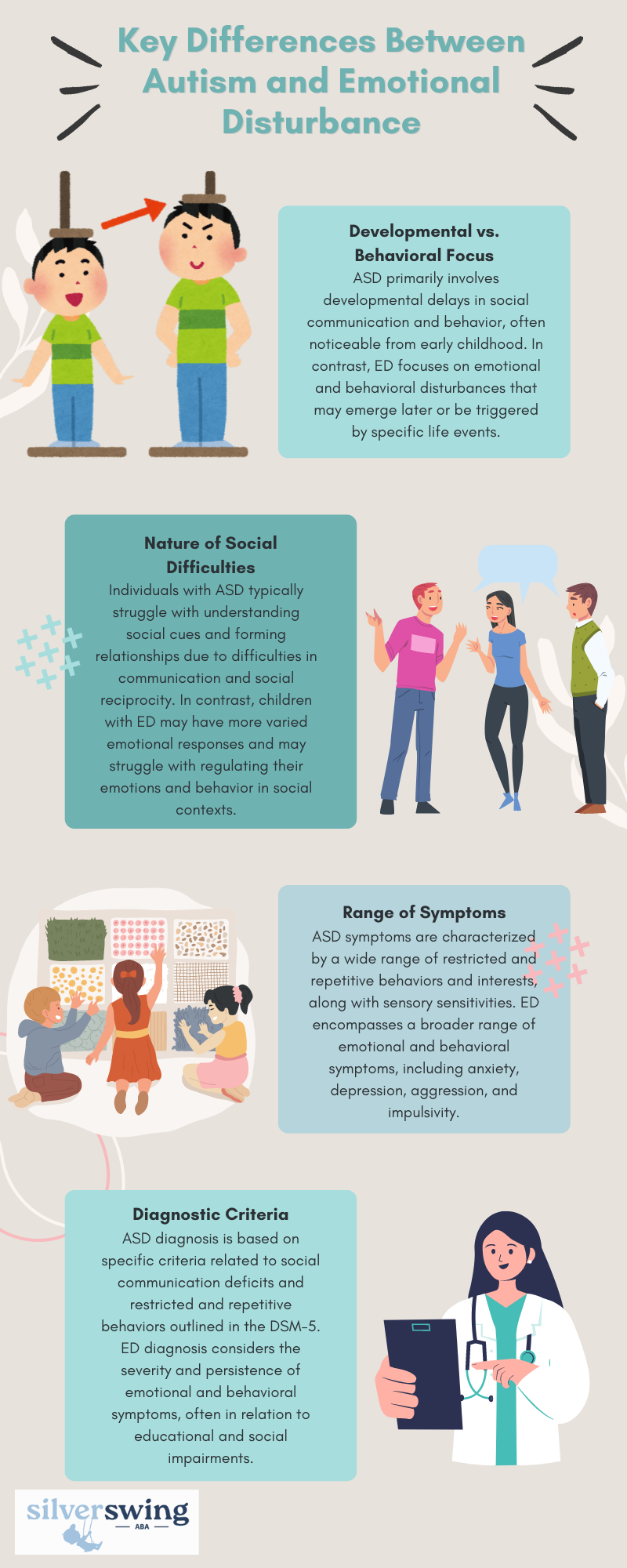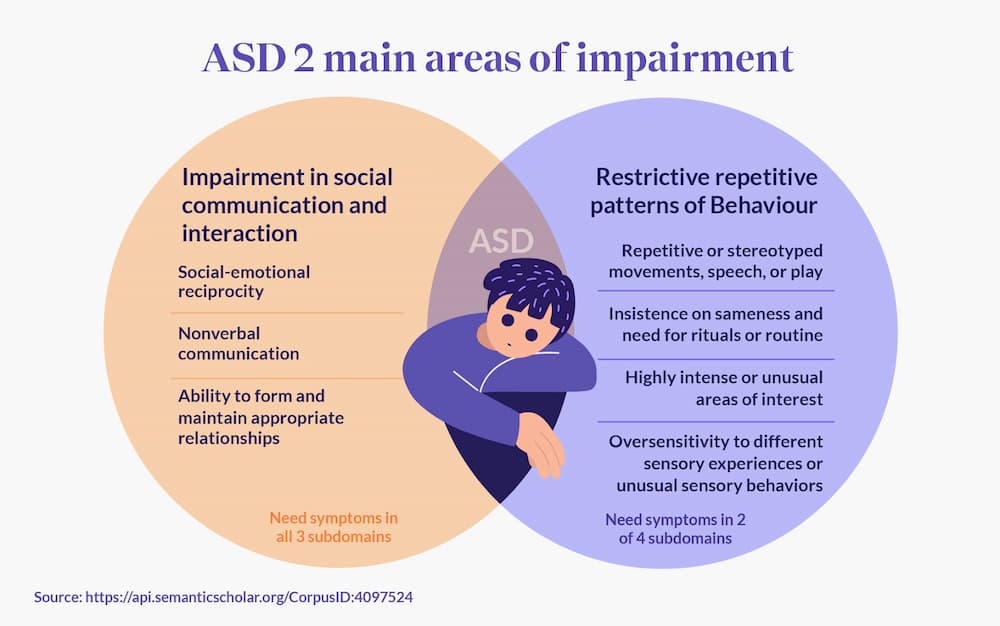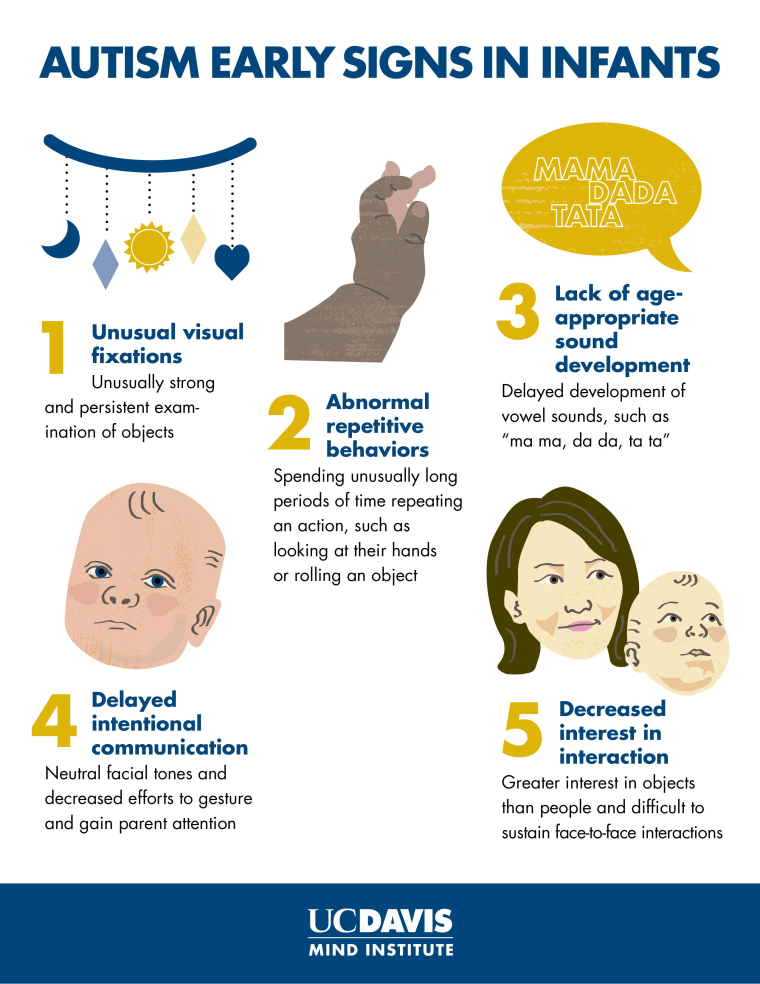Secret Indications and Signs And Symptoms to Recognize in Individuals With Behavior Autism
When you come across a person with behavior autism, recognizing vital indicators and signs and symptoms is necessary. Additionally, sensory sensitivities can lead to overwhelming experiences.
Obstacles in Social Communications
When you connect with somebody on the autism spectrum, you could notice they struggle with social signs and interaction. These challenges can make social communications feel frustrating for them. You might see them preventing eye call or standing too close or too far during conversations, which can produce misconceptions. They could not notice body movement or facial expressions, making it harder for them to assess exactly how others are really feeling.
When they do engage, they may talk about their rate of interests in excellent information without observing if you're interested. Recognizing these challenges can assist you approach communications with compassion and perseverance, cultivating a much more comfy environment for both of you.
Problem With Verbal and Non-Verbal Communication

Acknowledging these indicators is crucial, as it aids you far better support and involve with individuals on the autism range. By understanding their interaction difficulties, you can promote extra meaningful connections and provide a more helpful setting.
Repeated Actions and Regimens
Interaction obstacles frequently go along with various other signs of autism, such as repeated behaviors and a solid choice for regimens. You may see that individuals with autism typically participate in specific, repetitive activities, like hand-flapping, rocking, or repeating phrases. These behaviors can provide comfort and a sense of control in a typically frustrating world.
Routines are similarly crucial; several people thrive when they follow an organized schedule. You might discover that modifications to these regimens can result in significant distress. For instance, if they have an everyday routine of eating breakfast at a particular time or adhering to a particular route to college, any type of disruption can create anxiousness.
Recognizing these patterns helps you understand their actions and supply support. By suiting their demand for regular and enabling repetitive activities, you can create a more comfy atmosphere that relieves their obstacles.
Sensory Sensitivities

Typical Sensory Triggers
Sensory sensitivities can significantly influence daily life for people with autism, as specific stimulations often set off frustrating reactions. Common sensory triggers include loud noises, intense lights, and solid smells. Comprehending these triggers can aid you manage your setting better.
Behavioral Reactions Discussed
Recognizing your behavioral responses to sensory level of sensitivities is necessary, as they commonly disclose just how you engage with the world. You might notice that particular audios, lights, or appearances bewilder you, resulting in stress and anxiety or pain. When faced with these stimuli, you could take out, cover your ears, or even react strongly. These actions aren't simply quirks; they're your method of managing overstimulation. You might also discover yourself looking for particular sensory experiences, like deep stress or silent atmospheres, to help ground on your own. Recognizing these patterns helps you recognize your requirements better and can lead exactly how you communicate them to others. By recognizing your sensory sensitivities, you can function towards developing a setting that really feels much more convenient and comfy for you.
Coping Techniques Overview
Identifying your sensory sensitivities is simply the very first step; now it's time to explore coping methods that can aid you take care of those experiences successfully. Start by creating a sensory toolkit customized to your demands. This can include noise-canceling headphones, fidget toys, or soothing fragrances. Developing an organized regimen can additionally give predictability, decreasing stress and anxiety around sensory overload. Take breaks in a silent space to regroup when you feel overwhelmed. Exercising mindfulness strategies such as deep breathing can assist ground you in the minute. Additionally, interact your requirements with those around you; having encouraging family and friends can make a substantial difference. Keep in mind, finding what works ideal for you might take some time, so be open and patient to trying new approaches.
Restricted Interests and Emphasis
While numerous individuals create a variety of interests, those with autism typically show restricted interests and an intense focus on particular topics. You could observe that someone with autism can invest hours diving into their favored subject, whether it's a particular sort of train, a certain movie, or a scientific idea. This extreme focus isn't simply a leisure activity; it can come to be a central component of their identity and social interactions.
You might find that conversations rotate around these passions, and they might have a hard time to involve in more comprehensive topics. hop over to here By comprehending and recognizing these limited interests, you can foster a helpful setting where they really feel valued and understood, enabling for more meaningful links and communications.
Emotional Guideline Problems
Individuals with autism typically deal with challenges in emotional guideline, which can be influenced by their intense concentrate on details interests. You might notice that when a person is deeply engaged in a preferred task, they can experience solid feelings, whether enjoyment or disappointment. This intensity sometimes makes it difficult for them to shift equipments or manage their feelings when points don't go as prepared.

Irregularity in Developmental Turning Points
When it comes to developing landmarks, you'll observe that people with autism frequently reveal a broad array of irregularity. You could see a kid stand out in language address abilities yet struggle with social interactions.
It's important to acknowledge that each individual's trip is distinct. Some might create intricate skills early, just to face challenges in the future. Others might take longer to attain basic milestones however then grow in specific areas. Observing these patterns can help you understand their strengths and needs better.
Frequently Asked Concerns
Exactly How Is Autism Diagnosed in Kid and Grownups?
To detect autism in grownups and children, specialists assess habits, communication skills, and social communications. If a specific meets the standards for autism range condition., they usually use standard examinations, interviews, and monitorings to establish.
Are There Various Sorts Of Autism Range Disorders?
Yes, there are different sorts of autism spectrum problems, including Asperger's syndrome and pervasive developing disorder-not or else defined. Each type differs in severity and characteristics, so understanding these differences can assist you better assistance individuals with autism.
What Therapies Work for Individuals With Autism?
When considering reliable treatments for people with autism, you'll locate options like Applied Actions Evaluation, speech treatment, and occupational treatment. Each strategy can assist enhance communication, social abilities, and everyday working tailored to specific needs.
Can Individuals With Autism Lead Independent Lives?
Yes, people with autism can lead moved here independent lives. With the right support, skills training, and sources, you can assist them create self-sufficiency, manage daily tasks, and flourish in different settings, fostering their independence.
Just How Can Families Assistance Enjoyed Ones With Autism?
You can sustain your enjoyed ones with autism by producing a structured environment, motivating their passions, practicing patience, cultivating interaction, and advertising social skills. Celebrate their achievements, no matter exactly how little, and develop a supportive community.
Although numerous individuals on the autism spectrum can make use of and comprehend language, they frequently face considerable challenges with both non-verbal and spoken communication. Acknowledging these indicators is necessary, as it helps you far better support and involve with individuals on the autism spectrum. You could notice that individuals with autism commonly engage in details, repeated activities, like hand-flapping, rocking, or repeating expressions.Sensory sensitivities can significantly impact daily life for people with autism, as certain stimulations frequently cause overwhelming reactions.When it comes to developmental turning points, you'll observe that people with autism usually show a wide variety of irregularity.